Filter by
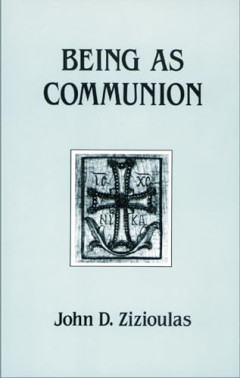
Being As Communion: Studies in Personhood and the Church
The voice of John Zizioulas may turn out to be the fresh voice for which theology and especially ecclesiology have long been waiting. In the context of a complete theology, which includes extended consideration of the major theological topics--the Trinity, Christology, eschatology, ministry, and sacrament, but above all, the Eucharist--the author propounds a fresh understanding, based on the ea…
- Edition
- -
- ISBN/ISSN
- 9780881410297
- Collation
- Softcover; 269 hlm.; 14 x 21 cm
- Series Title
- -
- Call Number
- 262
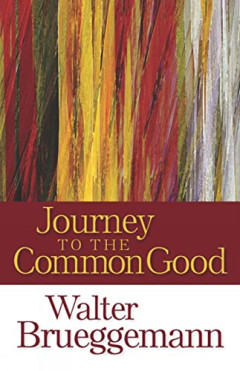
Journey to the Common Good
A decade ago, Walter Brueggemann called the church to journey together for the good of our community through neighborliness, covenanting, and reconstruction. He distilled this challenge to its most basic issues: Where is the church going? What is its role in contemporary society? What lessons does it have to offer a world enmeshed in turbulent times? Published originally in 2010, Journey to the…
- Edition
- 1
- ISBN/ISSN
- 9780664235161
- Collation
- Softcover; 125 hlm.; 13.97 x 21.59 cm
- Series Title
- -
- Call Number
- 261.8
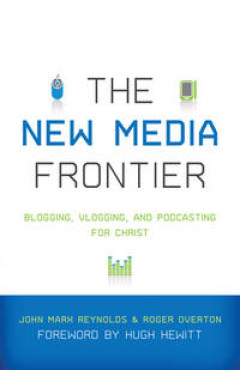
The New Media Frontier: Blogging, Vlogging, and Podcasting for Christ
A Pew Study reports that only 2% of America's twelve million bloggers claim religion, spirituality or faith" as their main topic. This leaves a great mission field in cyberspace, say contributors to The New Media Frontier , because the latest forms of communication present so many opportunities to promote the cause of Christ in other topics and fields. Before blindly jumping in, however, Christ…
- Edition
- -
- ISBN/ISSN
- 9781433502118
- Collation
- Softcover; 254 hlm.; 14 x 21 cm
- Series Title
- -
- Call Number
- 261.52
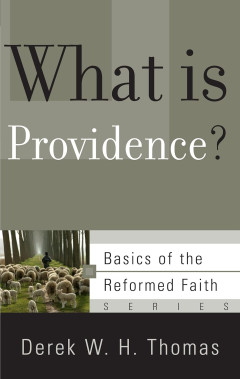
What is Providence?
This booklet examines the doctrine of providence by observing how the Bible explains the complex lives of men and women, and also by weighing opposing viewpoints, including Open Theism and Molinistic views of "middle knowledge."
- Edition
- -
- ISBN/ISSN
- 9781596380929
- Collation
- Softcover; 40 hlm.; 12.95 x 21.08 cm
- Series Title
- Basics of the Faith Series
- Call Number
- 231.5

Fools Rush in Where Monkeys Fear to Tread: Taking Aim at Everyone
A pithy collection of the best of Carl Trueman's articles on culture and the church. A compelling, challenging, and sometimes uproarious look at how the world and the church intersect. Like Luther before him, Trueman understands the power of humor because he understands the absurdity of human self-regard in the context of the fallen world. And like Luther, Trueman shows no mercy, either to his …
- Edition
- -
- ISBN/ISSN
- 9781596384057
- Collation
- Soft Cover, 240 hlm, 13 x 22 cm
- Series Title
- -
- Call Number
- 261
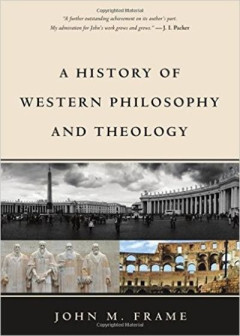
A History of Western Philosophy and Theology
A History of Western Philosophy and Theology is the fruit of John Frame's forty-five years of teaching philosophical subjects. No other survey of the history of Western thought offers the same invigorating blend of expositional clarity, critical insight, and biblical wisdom. The supplemental study questions, bibliographies, links to audio lectures, quotes from influential thinkers, twenty appen…
- Edition
- -
- ISBN/ISSN
- 9781629950846
- Collation
- Hardcover; 875 hlm.; 18 x 26 cm
- Series Title
- -
- Call Number
- 261.51
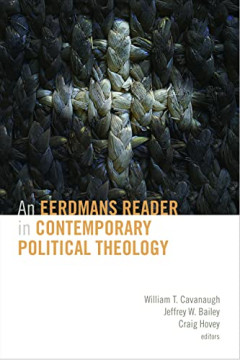
An Eerdmans Reader in Contemporary Political Theology
An Eerdmans Reader in Contemporary Political Theology gathers some of the most significant and influential writings in political theology from the twentieth and twenty-first centuries. Given that the locus of Christianity is undeniably shifting to the global South, this volume uniquely integrates key voices from Africa, Asia, and Latin America with central texts from Europe and North America on…
- Edition
- -
- ISBN/ISSN
- 9780802864406
- Collation
- Softcover; 812 hlm.; 15 x 23 cm
- Series Title
- -
- Call Number
- 261.7
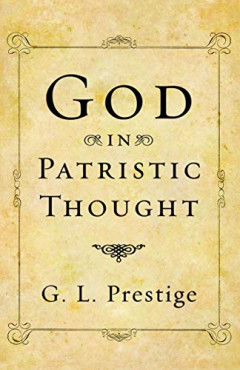
God in Patristic Thought
This book assembles the evidence for what the Greek Fathers, the men whose constructive thought underlies the creeds, really thought and taught about the nature of God. It shows that they were original thinkers, with a profound reverence for the text of the Scriptures, and minds keenly trained to discuss what ultimate truths were expressed in the scriptural text and what reality should be ascri…
- Edition
- -
- ISBN/ISSN
- 9781556357794
- Collation
- Softcover; 318 hlm.; 14 x 21.5 cm
- Series Title
- -
- Call Number
- 231
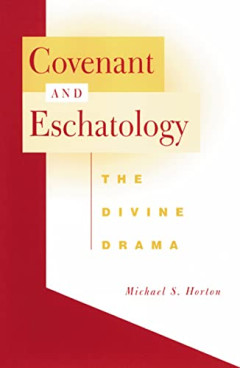
Covenant and Eschatology: The Divine Drama
In this innovative work in theological method and hermeneutics, Michael S. Horton uses the motif of the covenant as a way of binding together God's "word" and God's "act." Seeking an integration of theological method with the content of Christian theology, Horton emphasizes God's covenant as God's way of working for redemption in the world. Horton maintains a substantial dialogue with important…
- Edition
- 1
- ISBN/ISSN
- 0664225012
- Collation
- Softcover; 360 hlm.; 15.44 x 23.11 cm
- Series Title
- -
- Call Number
- 230
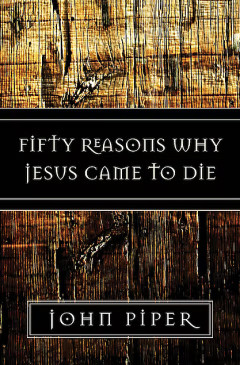
Fifty Reasons Why He Came to Die
WHY? The most important questions anyone can ask are: Why was Jesus Christ crucified? Why did he suffer so much? What has this to do with me? Finally, who sent him to his death? The answer to the last question is that God did. Jesus was God's Son. The suffering was unsurpassed, but the whole message of the Bible leads to this answer. The central issue of Jesus' death is not the cause, but…
- Edition
- -
- ISBN/ISSN
- 9781581347883
- Collation
- Softcover; 127 hlm.; 13.3 x 20.3 cm
- Series Title
- -
- Call Number
- 232.96
 Computer Science, Information & General Works
Computer Science, Information & General Works  Philosophy & Psychology
Philosophy & Psychology  Religion
Religion  Social Sciences
Social Sciences  Language
Language  Pure Science
Pure Science  Applied Sciences
Applied Sciences  Art & Recreation
Art & Recreation  Literature
Literature  History & Geography
History & Geography